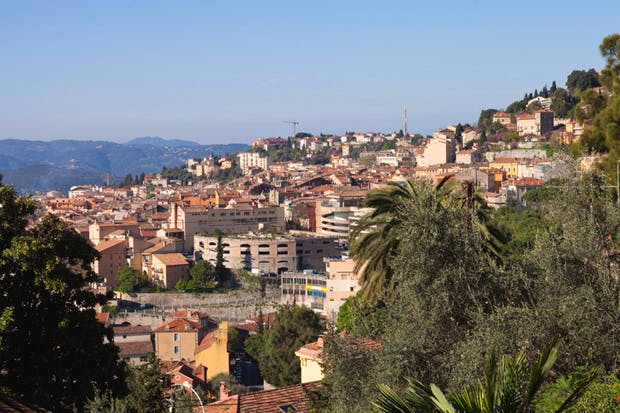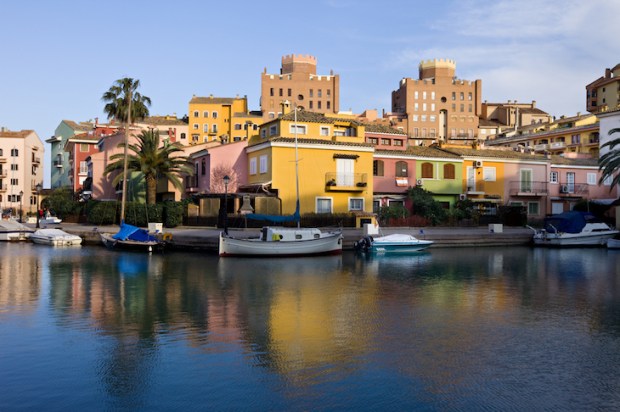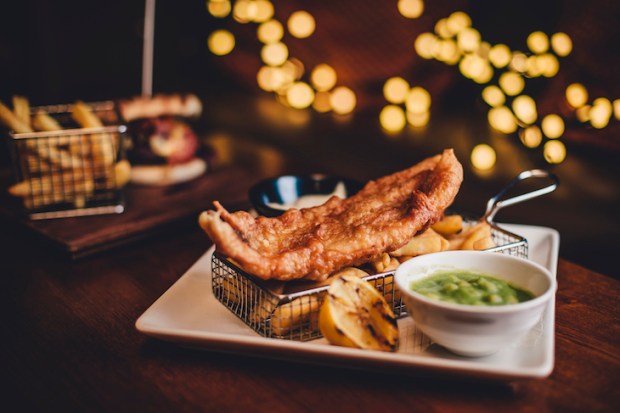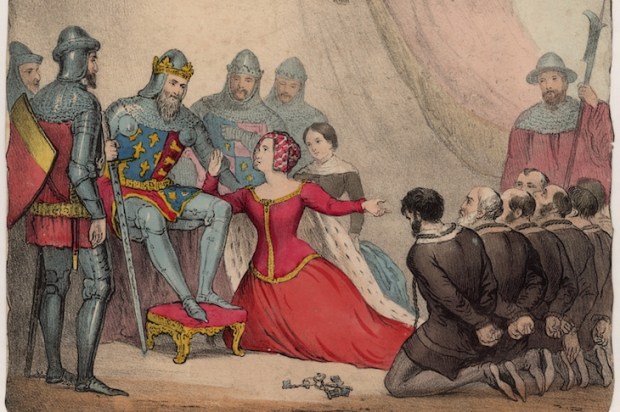We’re driving east, destination Grasse. Hairpin bends circling oak-clad hills. Autumn gold and scarlet. Exciting cambers. Blinding winter sunshine. The radio tuned to France Musique. A virtuoso Latin jazz trumpet. A bit poncy but it’s better than nothing. We’ve been talking and not talking. Now we’re talking again. She asks me if I like the social class I was born into. I like it very much,I say.
‘You didn’t rebel against your parents as a teenager?’ she says. I might have against my parents but not against my class, I say. I thought everyone was lower middle class. And when I was old enough to recognise other social classes, I was pleased to be lower middle class because it seemed to be the funniest class. I didn’t stop laughing. You never knew what someone was going to say next. ‘So were you the first person in your family to go to university?’ she says. Never mind university, I was the first person in our family to be born without a tail, I tell her.
‘You seem to be able to mix easily with all social classes,’ she says. ‘I like that about you.’ On the surface, I can, yes, I say. ‘Which is just as well because you’ve become disconnected from your lower-middle-class origins, haven’t you?’ she says. This I vehemently deny, arguing that a set of unusual circumstances has dictated that I haven’t seen much of my friends in the past year. But when I’m with my lower-middle-class friends, I tell her, I really am at home.
Earlier, I complained to her about an insufficiency of material, given our quiet life, with which to write my weekly columns. She returns to the subject. Whether she does so because she thinks my difficulties are related in some way to the question of my class identity, I couldn’t say. It’s possible. ‘So what makes a good column?’ she says. I think about this. Off the top of my head, I say, ‘Love, humour, tragedy, joy, anger, drama, hypocrisy, coincidences, oddities, weirdness. And sex.’ She thinks about my answer. Then she says, ‘Perhaps if you lowered your sights a bit, you might find them easier to write.’ ‘What do you mean?’ I say. She says she isn’t sure what she means.
We reach the summit of a long hill and find that we have arrived in the old town of Grasse. I park the car in a multistorey car park and we walk outside into the narrow streets. She is pleased and surprised by the succession of little upmarket shops that we pass on the way to the perfume-factory museum. We’ve both dressed up a bit for our day trip to Grasse. I’ve got a tie on and a cashmere jumper and could almost pass for a bourgeois. She, I note, is attracting glances of social approval, and of venery, from passers-by. The ancient shopping streets of Grasse old town in winter have that moneyed hush about them. Even the elderly and frail are dressed expensively, sometimes with startling panache. After a plat du jour and pichet of rosé at an outside table with the sun in our eyes, served by the most ingratiatingly complicit of waiters, we tour the perfume museum, marvelling in particular at the funkiness of 18th-century glass perfume-bottle design. You’d think they were pop-art stuff from the 1960s. In the giftshop I buy perfumed soaps in pretty boxes to give as Christmas presents.
Back at the car park, the payment machine refuses to read our ticket. She goes away with it to sort it. Three short, badly dressed, rather unpresentable women approach the car parked next to mine. They are waiting for a fourth person to arrive, who presumably has the key. I must stand out as a tourist, because one of them says to me in French: ‘So what do you make of Grasse?’ ‘Lovely,’ I say. ‘Very nice.’ She angrily turns up her nose and looks away. ‘What’s wrong with it?’ I say. For the next five minutes, with the three of them speaking at once, they passionately harangue me about what a terrible place Grasse is to live in if you are as poor as they are. Everything so expensive. Shops irrelevant to their needs. Awful social housing. Cockroaches. Damp. Flooding every winter. Don’t be fooled, seems to be the thrust of it. Scratch the surface of Grasse and the perfume of the poverty ain’t so fragrant.
I drive up to the exit floor. She has resolved the problem with the ticket. The barrier lifts. She hops in beside me. We depart. On the way home we talk or don’t talk. We’re easy with either. I like that about us. But after a period of not talking she suddenly says, ‘You’re not going to dump me, are you?’
Got something to add? Join the discussion and comment below.
Get 10 issues for just $10
Subscribe to The Spectator Australia today for the next 10 magazine issues, plus full online access, for just $10.















Comments
Don't miss out
Join the conversation with other Spectator Australia readers. Subscribe to leave a comment.
SUBSCRIBEAlready a subscriber? Log in